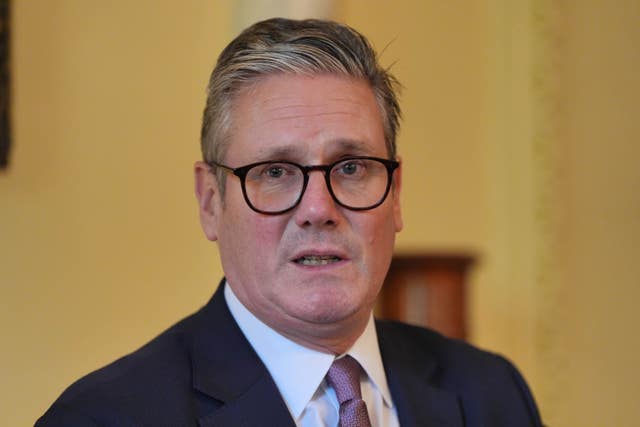Journalism is the “lifeblood of democracy” and publishers should have control over and seek payment for their work as AI (artificial intelligence) technology continues to transform the economy and way of life, the Prime Minister said.
In an article marking the launch of the News Media Association’s Journalism Matters campaign, Sir Keir Starmer said news media and the creative sector are “central to this government’s driving mission on economic growth”.
Sir Keir said his Government would “always champion press freedoms” – which would include tackling strategic lawsuits against public participations (Slapps) deployed by the powerful to stop journalists publishing the truth – and warned that digital technology must not be allowed to erode press freedom.
He added: “There are over 900 local and national news titles in the UK. For all the prophecies of doom about the future of news, that represents an extraordinary strength. The British news industry reaches over 80% of the population.
“However, this vitality should not blind us to the challenges. And, while thankfully there is no direct threat to press freedoms in our country, we must remain vigilant that the growing power of digital technology does not begin to chip away at them. Particularly as artificial intelligence begins to transform our economy and way of life.
“Both artificial intelligence and the creative industries – which includes news and media – are central to this government’s driving mission on economic growth.
“To strike balance in our industrial policy, we are working closely with both sectors. We recognise the basic principle that publishers should have control over and seek payment for their work, including when thinking about the role of AI.
“Not only is it essential for a vibrant media landscape, in which the sector’s provision of trustworthy information is more vital than ever, it is also relevant to our ongoing work to roll out the Digital Markets and Consumers Act as swiftly as possible.
“This landmark legislation will help re-balance the relationship between platforms and those, such as publishers, who rely on them.
“We also stand with journalists who endure threats just for doing their job. Just because journalists are brave, does not mean they should ever suffer intimidation.
“This goes for social media. The Online Safety Act will introduce new protections from abuse, as well respecting recognised news publisher content.

“Such behaviour is intolerable and we will tackle the use of Slapps to protect investigative journalism, alongside access to justice. Because this is a government that will always champion press freedoms. We believe in being held to account.
“I am determined to show that traditional democratic British values are the only way to deliver the change that working people need – that is my political project in a nutshell.
“And there can be nothing more traditional, democratic or British than a robust free press, fearlessly holding the powerful to account.”
Run by the News Media Association (NMA) on behalf of the industry, Journalism Matters is a week-long campaign highlighting the role journalism plays in the UK. The campaign runs until Sunday.
In an article to mark the launch of the campaign, NMA chief executive Owen Meredith said: “This week we are celebrating Journalism Matters week, dedicated to honouring the extraordinary work that UK journalists carry out, day in, day out – from shining a light on corruption, holding power to account and reporting from the halls of Westminster to warzones in Israel, Gaza and Ukraine, all in the public interest.
“For this vital component of our democracy to continue, the government must ensure a sustainable environment for our free press through measures such as standing up for press freedom as journalism faces an increasing array of threats, supporting our brilliant local news media which reaches huge audiences in print and digital, and maintaining our robust gold standard copyright regime to ensure content creators control use of their works as AI technology continues to develop.”






